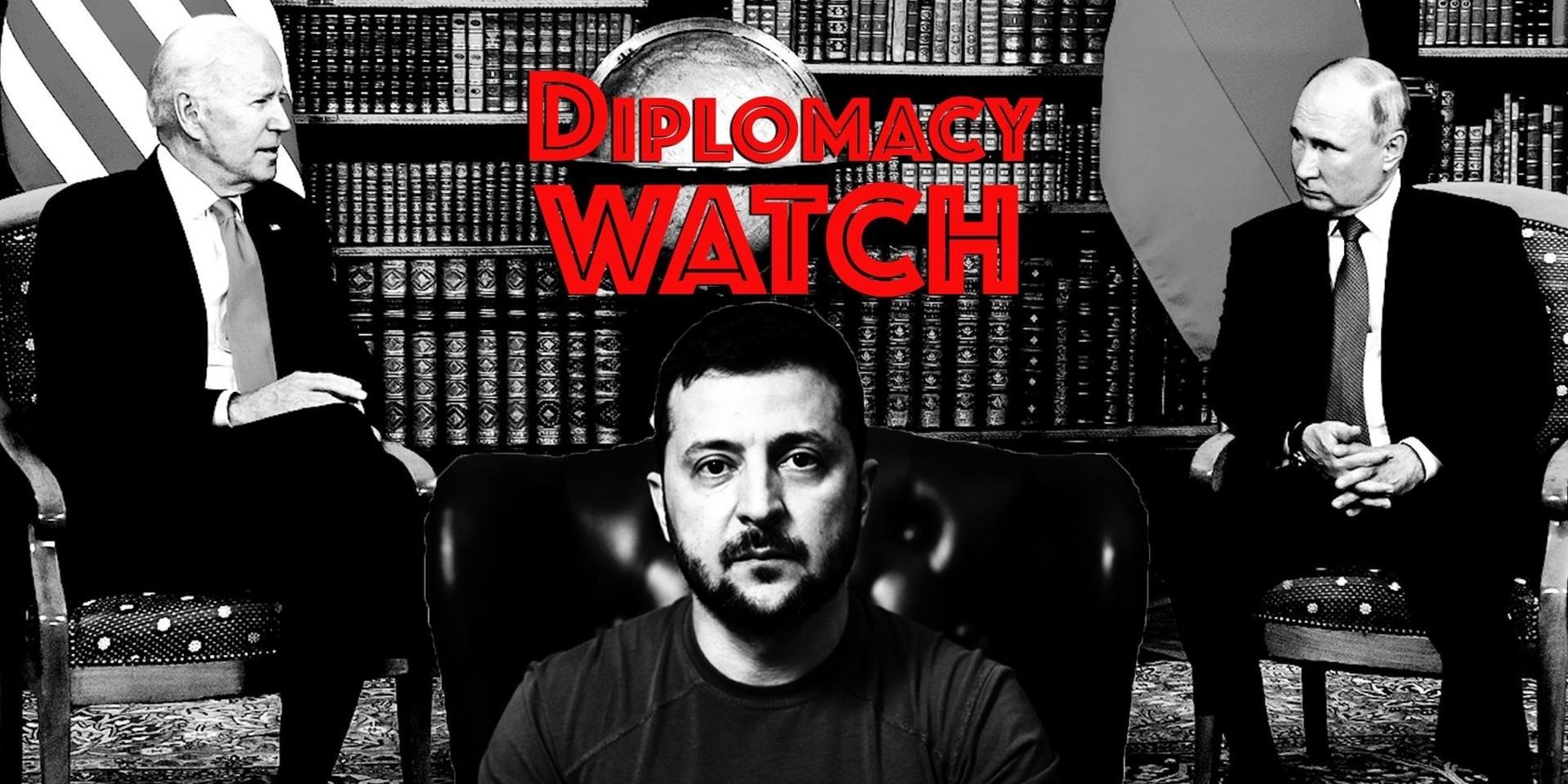In an interview on September 3, former Under Secretary of State for Political Affairs Victoria Nuland lent credence to reports that Western powers pressured Kyiv to reject a deal during the Ukraine-Russia peace process in April 2022 that would have ended the Russian invasion.
“Relatively late in the game the Ukrainians began asking for advice on where this thing was going and it became clear to us, clear to the Brits, clear to others that (Russian President Vladimir) Putin's main condition was buried in an annex to this document that they were working on,” said Nuland, pointing to the requirement that Ukraine’s military be subject to hard caps on personnel and weaponry.
Her assertions can be added to a series of comments made by a host of officials and diplomats who have made similar claims. According to a Foreign Affairs article from October 2022, multiple former senior U.S. officials said that “Russian and Ukrainian negotiators appeared to have tentatively agreed on the outlines of a negotiated interim settlement: Russia would withdraw to its position on February 23, when it controlled part of the Donbas region and all of Crimea, and in exchange, Ukraine would promise not to seek NATO membership and instead receive security guarantees from a number of countries.” This supports the idea that a workable solution was present in Istanbul.
Former Israeli Prime Minister Naftali Bennett played a large role in those April 2022 negotiations. In an interview, he also claimed that Russia and Ukraine were willing to make major concessions and end the conflict, until pressure from then UK Prime Minister Boris Johnson convinced Zelensky to back down from such a deal. Davyd Arakhamia, a Ukrainian parliamentary representative at the talks, made a similar claim. “They were hoping almost to the end to put pressure on us to sign such a document and accept neutrality. It was a big deal for them,” he said in November 2023, referring to the Russians. “They were ready to end the war if we, like Finland once did, would accept neutrality and pledge not to join NATO. In fact, that was the main point. All the rest are cosmetic and political ‘additions.’”
Nuland’s comments provide additional perspective to how Washington was thinking about the situation. “People inside Ukraine and people outside Ukraine started asking questions about whether this was a good deal and it was at that point that it fell apart,” she said.
It’s unclear at this point who those people “outside Ukraine” Nuland is referring to were, and how much direct authority they had in the situation.
Indeed, according to Mark Episkopos, Eurasia Research Fellow at the Quincy Institute, “The extent to which these Western reservations were decisive insofar as they constituted a hard veto over the peace talks is a trickier question. One can reasonably surmise that Ukraine would have found it difficult to ink a deal that did not command at least tacit support from the Western countries on which it overwhelmingly relies.”
He added, “Victoria Nuland's comments lend further credence to the proposition that a settlement between Russia and Ukraine was on the table in Istanbul, that the West played a role in shaping Ukrainian thinking on the desirability of pursuing negotiations, and that Western leaders apparently conveyed the view that it was a bad deal.
In other Ukraine war news this week:
— President Biden is mulling over whether or not to cross another one of Putin’s red lines. According to The New York Times, Biden is meeting with British Prime Minister Keir Starmer on Friday to discuss whether or not to extend the current 60 mile limit on the use of U.S. weapons over the border into Russia. European powers who gave Ukraine “bunker buster” missiles seem to be waiting on Washington’s approval before also allowing these munitions to be used against targets far into Russia.
— The U.S. accused Iran of sending missiles to assist the Kremlin in its fight against Ukraine. The Washington Post reported that Secretary of State Antony Blinken said on Tuesday that Iran had begun supplying these munitions to allow the Russians to keep some of their own in reserve. “We’ve warned Tehran publicly, we’ve warned Tehran privately, that taking this step would be a dangerous escalation,” he said. “Russia has now received shipments of these missiles.” Blinken added that in exchange, Russia was assisting Tehran with its nuclear program. The U.S., France, Germany, and the UK responded with a new round of economic sanctions on Iran. Spokespeople from Tehran and the Kremlin deny the arms shipment allegations altogether.
— Ukraine launched a drone attack on Moscow on Tuesday September 10. Reuters reports that the attack killed one woman and damaged homes in the city. Dozens of people were evacuated, with three airports in Moscow being temporarily shut down. This was part of Ukraine’s largest drone attack thus far, with Russia claiming to have destroyed around 20 drones in Moscow, and 124 in other regions.
— Russia responded to the drone attacks and the recent Kursk invasion by initiating counterattacks on Thursday. CNBC summarizes the new operation, explaining that Russian troops have already taken back control of around 10 settlements in Kursk. Putin has reportedly ordered Kursk to be recaptured by October 1.
- Diplomacy Watch: Did Boris Johnson help stop a peace deal in Ukraine? ›
- I was there: NATO and the origins of the Ukraine crisis ›
- What I saw and heard about the Ukraine war in Moscow ›
- Even if the war ended tomorrow, Ukraine could end up broke by 2026 | Responsible Statecraft ›
- Istanbul 2.0: know when to hold 'em, know when to fold 'em | Responsible Statecraft ›
- There'll be no Ukraine peace breakthroughs today — or this year | Responsible Statecraft ›
















